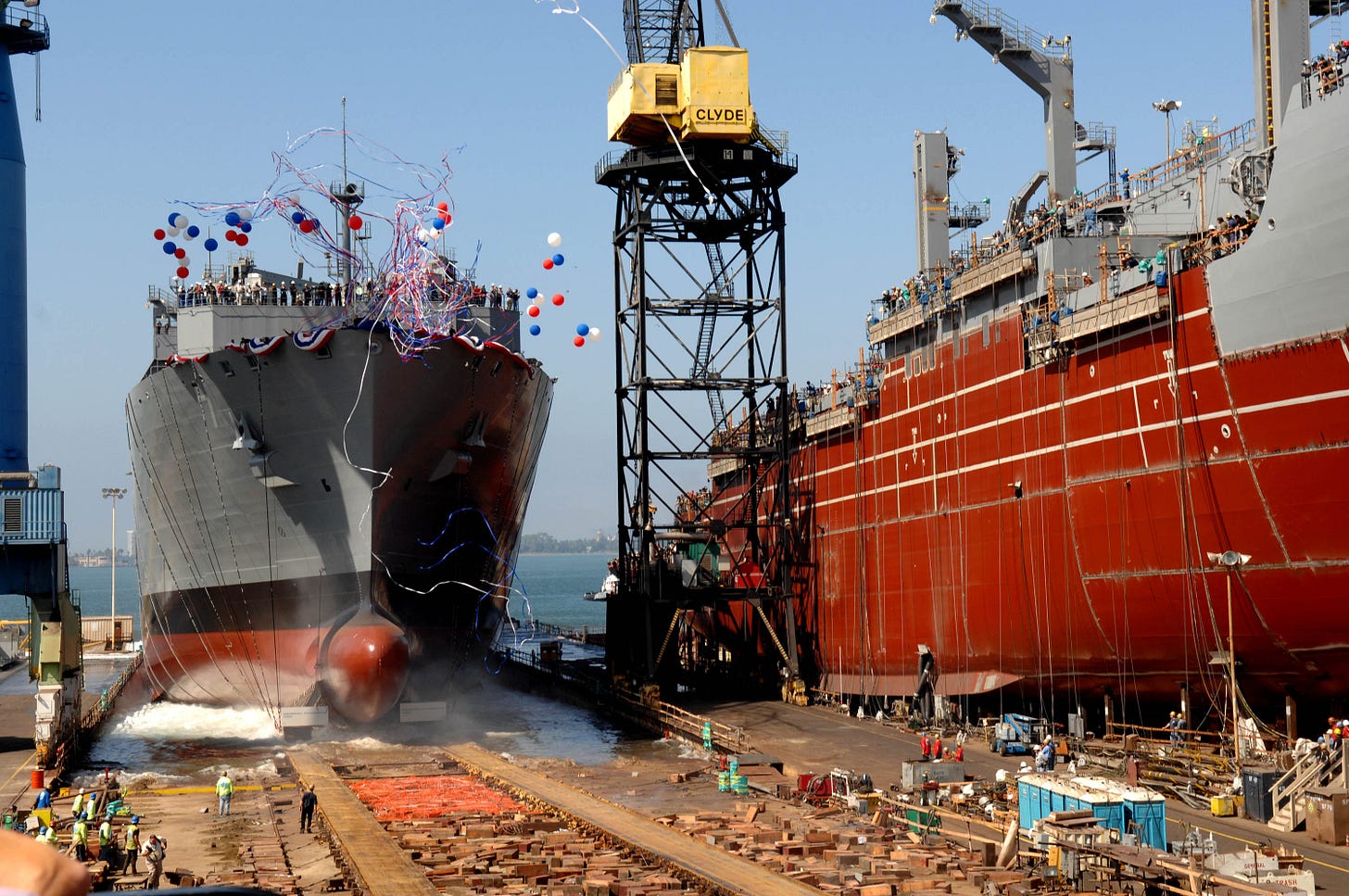Reconciling the reality of Maritime Statecraft and International Trade
By: Commander Corydon F. Heard IV, U.S. Coast Guard
Christening, launch ceremony of USNS Carl Brashear (T-AKE-7). Courtesy Photo U.S. Navy Public Domain
Editor’s Note: Commander Heard’s thesis won the FAO Association’s writing award at the Eisenhower School, National Defense University. The Journal is pleased to bring you this outstanding Scholarship.
Disclaimer: The views expressed in this paper are those of the author and do not reflect the official policy or position of the National Defense University, the Department of Defense, Department of Homeland Security, or the U.S. Government.
“If you let your mise-en-place run down, get dirty and disorganized, you’ll quickly find yourself spinning in place and calling for backup.”
-Anthony Bourdain[1]
The “MEEZ”
The expression transcends the gastronomic microcosm. Regardless of cuisine or genre, mise en place holds a prominent status in the culinary lexicon.[2] To the uninitiated, the phrase translates as “everything in its place,” an eccentric characterization of neat and tidy. Deep in the trenches of the Brigade de Cuisine, however, the term of art evokes a heightened sense of militaristic discipline and conjures the laser focus required to execute an impeccable meal service. For professional chefs, “meez” embodies both a state of mind and the physical manifestation of readiness. The underlying rationale is that organization and preparation yield efficiencies in overall execution.[3] Indeed, the foundational premise is conditioned on trusted recipes (strategy), effective regimentation (command), prepared ingredients (resources), and sharp instruments (policy). At its core, it is the epitome of order. In this regard, mise en place carries relevant application beyond the culinary world with pertinent utility for America’s modern maritime policy.
In September 2023, Secretary of the Navy, Carlos Del Toro, called for a new whole-of-government effort to expand U.S. and allied maritime power. The concept, known as "maritime statecraft," leverages both naval diplomacy and the nation's competitive edge to meet contemporary demands in an era of intense strategic competition. Of principal importance, it includes the peacetime promotion of national security interests as well as the economic prosperity of the United States. To successfully compete on a global scale, maritime statecraft emphasizes the significance of economic development and maritime trade centered on a strong commercial shipping sector and shipbuilding base. Afterall, longstanding American naval strategists, the likes of Mahan, maintain that “naval power begets maritime commercial power, and control of maritime commerce begets greater naval power.”[4] At least, in theory.
For decades, the number of U.S.-flag cargo ships trading internationally has fallen into obscurity as globalization drove jobs overseas in search of more favorable operating conditions and competitive labor rates.[5] Consequently, the major U.S. shipbuilding industry has evaporated, producing less than one percent of the world’s commercial tonnage.[6],[7] Today, the major U.S. shipbuilding and repair industry is comprised of dual-use markets, characterized as a highly competitive oligopoly with few opportunities for new entrants or substitutes, due to regulatory protections, as well as high bargaining power for suppliers and few buyers.[8],[9] Absent the protections afforded by coastwise trade laws, commercial shipbuilding in the United States would be nonviable due to exorbitant production costs and lengthy construction timelines compared to heavily subsidized shipbuilders in China. Similarly, U.S.-flag commercial ships cannot compete in the international trades due to a variety of factors, including the prohibitive cost of U.S. labor, taxes, and insurance.[10] Accordingly, comprehensive government intervention will be necessary to balance international market demand and geostrategic prudence. For maritime statecraft to prevail, this whole-of-government effort will require innovative solutions such as dual-use shipbuilding programs, cargo preference reform, and sensible incentives to offset operating costs. It will require a deliberate and well-tended “meez.”



